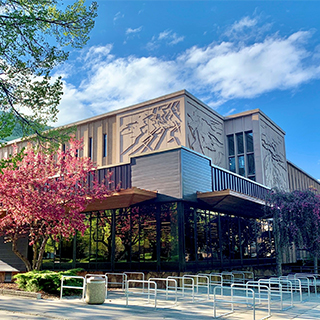Patron right to privacy, confidentiality and open inquiry
The Mansfield Library Mission Statement
In support of the University of Montana—Missoula’s mission to pursue academic excellence, the Maureen and Mike Mansfield Library facilitates the intellectual and creative pursuits of all members of the University community and supports their informational, educational and cultural development as global citizens.
Purpose
This policy details the rights of library users to privacy and to open enquiry without examination or scrutiny by others.
Library Bill of Rightsi
The American Library Association affirms that all libraries are forums for information and ideas, and that the following basic policies should guide their services.
- Books and other library resources should be provided for the interest, information, and enlightenment of all people of the community the library serves. Materials should not be excluded because of the origin, background, or views of those contributing to their creation.
- Libraries should provide materials and information presenting all points of view on current and historical issues. Materials should not be proscribed or removed because of partisan or doctrinal disapproval.
- Libraries should challenge censorship in the fulfillment of their responsibility to provide information and enlightenment.
- Libraries should cooperate with all persons and groups concerned with resisting abridgment of free expression and free access to ideas.
- A person’s right to use a library should not be denied or abridged because of origin, age, background, or views.
- Libraries which make exhibit spaces and meeting rooms available to the public they serve should make such facilities available on an equitable basis, regardless of the beliefs or affiliations of individuals or groups requesting their use.
- Code of Ethics of the American Library Associationii
As members of the American Library Association, we recognize the importance of codifying and making known to the profession and to the general public the ethical principles that guide the work of librarians, other professionals providing information services, library trustees and library staffs.
Ethical dilemmas occur when values are in conflict. The American Library Association Code of Ethics states the values to which we are committed, and embodies the ethical responsibilities of the profession in this changing information environment.
We significantly influence or control the selection, organization, preservation, and dissemination of information. In a political system grounded in an informed citizenry, we are members of a profession explicitly committed to intellectual freedom and the freedom of access to information. We have a special obligation to ensure the free flow of information and ideas to present and future generations.
The principles of this Code are expressed in broad statements to guide ethical decision making. These statements provide a framework; they cannot and do not dictate conduct to cover particular situations.
- We provide the highest level of service to all library users through appropriate and usefully organized resources; equitable service policies; equitable access; and accurate, unbiased, and courteous responses to all requests.
- We uphold the principles of intellectual freedom and resist all efforts to censor library resources.
- We protect each library user's right to privacy and confidentiality with respect to information sought or received and resources consulted, borrowed, acquired or transmitted.
- We respect intellectual property rights and advocate balance between the interests of information users and rights holders.
- We treat co-workers and other colleagues with respect, fairness, and good faith, and advocate conditions of employment that safeguard the rights and welfare of all employees of our institutions.
- We do not advance private interests at the expense of library users, colleagues, or our employing institutions.
- We distinguish between our personal convictions and professional duties and do not allow our personal beliefs to interfere with fair representation of the aims of our institutions or the provision of access to their information resources.
- We strive for excellence in the profession by maintaining and enhancing our own knowledge and skills, by encouraging the professional development of co-workers, and by fostering the aspirations of potential members of the profession.
Library Procedures to Protect Patron Privacy and Confidentiality
- Library employees must protect each library user’s right to privacy and confidentiality with respect to information sought or received and resources consulted, borrowed, acquired, or transmitted.
- Library records containing personally identifiable information of individual users and sources consulted are not released or made available except in the following special circumstances: (1) Records may be released or otherwise made available to federal, state or local law enforcement officials or any other person designated in a court order properly issued following a showing of good cause by the law enforcement officials or other persons seeking the records; or (2) Records may be released or otherwise be made available to federal, state or local law enforcement officers and UM officials without court order if an emergency exists and failure to act might reasonably result in serious harm to any person or property. University Legal Counsel will be consulted before any release or disclosure is made pursuant to these special circumstances.
- Upon request of law enforcement and based upon the legal standing of an alleged crime, a library employee will place a public computer in secure storage within the Mansfield Library Systems Office Server Room (MLIB 317a) for a period of time not to exceed 4 days (96 hours), during which time a court order can be sought from a court of competent jurisdiction. If a court order is not produced within 96 hours, the computer will be returned to public use, unless University Legal Counsel and the Dean of the Library otherwise determine to extend this storage time.
